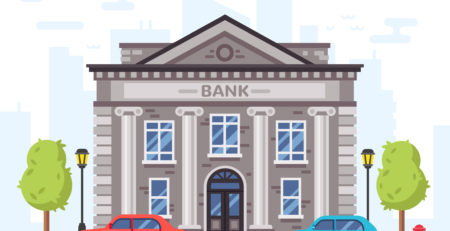Knowing When to Apply for a Cash Advance: Smart Financial Planning
Navigating the financial landscape requires savvy decision-making, especially when considering cash advances for immediate financial needs. Let’s explore the critical aspects of cash advances, including merchant cash advances, payday loans, and cash advance apps, to guide you through when and how to use them wisely. Additionally, we’ll explore alternatives like installment loans, focusing on achieving long-term financial stability.
What Are Cash Advances?
At their core, cash advances are short-term loans that offer quick access to funds based on future earnings or credit availability. Unlike traditional loans, which may require extensive paperwork and processing time, cash advances are known for their speed and accessibility, making them an ideal choice for urgent financial needs. However, it’s essential to understand that this convenience comes at a cost, often in the form of higher interest rates or fees compared to standard loan options.
Types of Cash Advances
Cash advances come in several forms, each with unique characteristics catering to different financial situations. Let’s explore the most common types:
- Merchant Cash Advances (MCAs): Primarily targeted towards businesses, MCAs provide immediate capital in exchange for a percentage of future credit card sales. This type of advance is particularly beneficial for businesses with high credit card transaction volumes but may suffer from short-term cash shortages. MCAs are characterized by their quick funding and flexible repayment terms, which adjust based on the business’s sales volume.
- Payday Loans: These are typically small, short-term loans intended to cover a borrower’s expenses until their next payday. Payday loans are known for their ease of access and minimal qualification requirements, often not requiring a credit check. However, they come with very high interest rates and fees, leading to criticism for potentially trapping borrowers in a cycle of debt.
The Right Time to Apply for a Cash Advance
Financial uncertainties can arise at any moment, often without warning, leaving individuals and businesses alike scrambling for solutions. Cash advances, when used judiciously, can offer a lifeline during these critical times. Understanding the right scenarios to apply for a cash advance can help mitigate the financial strain without compromising long-term financial health.
Emergency Situations
Life is unpredictable, and emergency situations that require immediate financial attention can arise out of nowhere. Whether it’s an unexpected medical emergency, urgent car repairs, or immediate home repairs after a sudden breakdown or natural disaster, the need for quick funds becomes paramount. In such cases, a cash advance can provide the necessary funds swiftly to address the crisis at hand. The key advantage here is the speed of access to funds, allowing for immediate action to resolve the emergency, thereby minimizing stress and potential escalation of the problem.
Cash Flow Shortfalls
Individuals often face moments when the timing of expenses does not align with their income schedule, leading to temporary cash flow shortfalls. This misalignment can result from irregular pay cycles, unplanned expenses, or simply the ebb and flow of life’s financial demands. A cash advance during these times can serve as a bridge, covering immediate expenses until the next paycheck arrives. It’s a strategic approach to ensure bills are paid, avoiding late fees, penalties, or the negative impact on credit scores, thus maintaining financial stability.
Business Needs
For business owners, cash flow management is a critical component of operational success. However, unexpected opportunities or challenges can arise, requiring quick financial decisions. Whether it’s restocking inventory ahead of a busy season, purchasing essential equipment that suddenly fails, or capitalizing on a sudden market opportunity, a merchant cash advance (MCA) can provide the necessary capital with flexibility and speed. MCAs are particularly suited for businesses with consistent credit card sales, offering a repayment structure that aligns with the business’s cash flow. This can be especially beneficial during seasonal fluctuations or when navigating the unpredictable terrain of business growth.
In each of these scenarios, the common thread is the need for immediate access to funds without the lengthy process and stringent requirements of traditional financing. However, it’s crucial to approach cash advances with caution, fully understanding the terms and ensuring it’s the most suitable option for the situation. Used wisely, cash advances can be a valuable tool in managing financial emergencies, bridging cash flow gaps, and seizing business opportunities without derailing long-term financial goals.
The Pros & Cons of Cash Advances
Cash advances can be a double-edged sword, providing a convenient and flexible financial solution in certain circumstances but also carrying potential risks that warrant careful consideration. Understanding both the benefits and drawbacks is crucial for anyone considering a cash advance to navigate their financial options effectively.
Benefits of Cash Advances
- Quick Access to Funds: Perhaps the most significant advantage of cash advances is the speed at which they can be obtained. Unlike traditional loans, which may involve a lengthy application and approval process, cash advances can often provide immediate liquidity to address urgent financial needs.
- Flexibility in Repayment: Specifically, for merchant cash advances (MCAs), the repayment terms are usually based on a percentage of daily credit card sales. This means that during slower business periods, the repayments will be lower, providing a degree of flexibility that is particularly beneficial for businesses with fluctuating sales volumes.
- Availability to Those with Varied Credit Histories: Cash advances, especially payday loans, are often accessible to individuals with less-than-perfect credit scores. This accessibility makes it an option for those who might not qualify for traditional bank loans due to their credit history.
Disadvantages of Cash Advances
- Higher Costs Compared to Traditional Loans: The convenience and accessibility of cash advances come at a cost. The fees and interest rates associated with cash advances are typically much higher than those of conventional loans, reflecting the lender’s increased risk. This can significantly increase the total amount that must be repaid.
- Impact on Cash Flow Due to Repayment Terms: For businesses utilizing MCAs, the daily or weekly repayment model, while flexible, can also strain cash flow. This is particularly true during periods of lower sales, where a significant portion of revenue may need to be directed towards repaying the advance, potentially impacting the ability to cover other operational expenses.
Best Practices for Cash Advances: Navigating Your Financial Options Wisely
When it comes to managing cash advances, adopting a strategic and informed approach can make all the difference.
Do’s for Cash Advances | Don’ts for Cash Advances |
|
|
Exploring Alternatives to Cash Advances: Smarter Ways to Manage Financial Needs
While cash advances offer a quick solution to unexpected financial dilemmas, they come with high fees and the potential for entering a debt cycle. Fortunately, there are several less expensive alternatives that can provide financial relief more sustainably:
Credit Card Low-Interest Promotions
Credit cards sometimes offer low-interest promotions, including 0% APR for a specific period on purchases or balance transfers. These promotions can be an excellent way to manage short-term financial needs without accruing high interest. However, it’s essential to be aware of the promotion’s expiry date and plan to pay off the balance before the standard higher interest rates apply. This option is particularly beneficial for those who can secure and responsibly manage a credit card, ensuring the borrowed amount is repaid within the promotional period.
Emergency Savings
The best alternative to cash advances is arguably an emergency savings fund. Building and maintaining a savings account for unexpected expenses can provide financial security and independence. Using your savings to cover unforeseen costs eliminates the need for borrowing and the associated interest or fees. While building an emergency fund may require discipline and time, it’s invaluable for your financial well-being. Start small and gradually increase your savings goal as your financial situation improves.
Installment Loans
Installment loans are another alternative to cash advances. These loans are repaid over a set period through scheduled payments, making it easier to manage repayment without straining your budget. Installment loans are useful for expenses that require more time to pay off, such as home repairs or medical bills. They’re also available from various lenders, like Koster’s, which often have more flexible qualification criteria than traditional banks.
Embrace Financial Stability with Koster’s Installment Loans
Understanding the nuances of when to utilize cash advances and their implications is crucial. Yet, it’s equally important to consider alternative financial solutions for long-term stability. Koster’s Cash Loans provides installment loans designed to meet your financial needs with ease and flexibility. These loans offer a sensible alternative, ensuring quick funding coupled with clear, manageable repayment plans, making them an ideal choice for those in need of financial support without the high costs associated with traditional cash advances.
Reach out to Koster’s Cash Loans today to learn more about our financial solutions.







